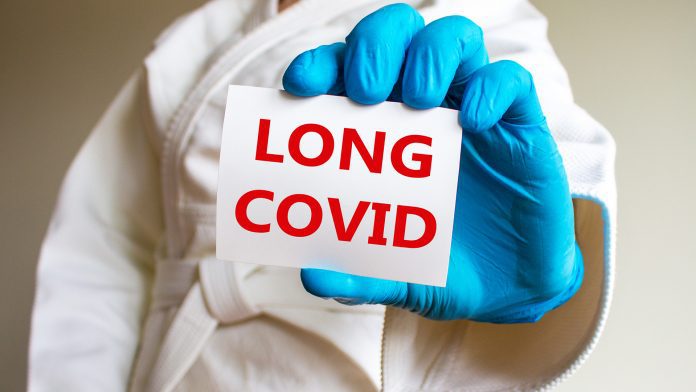
A research team may have identified an effective long COVID treatment, finding that brain stimulation may remedy the cognitive deficits caused by the condition.
Symptoms of cognitive deficits in memory, attention, language comprehension, multitasking, and fatigue persist in many COVID-19 patients for many weeks and months after the initial symptoms of the disease have subsided. Now, scientists have identified a potential long COVID treatment, suggesting that using alternating non-invasive brain stimulation using microcurrents (NIBS) for three to four days can cure the condition.
Bernhard A. Sabel, PhD, Director, Institute of Medical Psychology, Medical Faculty, Otto-von-Guericke University of Magdeburg and lead investigator of the study, commented: “COVID infection can induce delayed cognitive impairments that are quite serious in some patients. Common symptoms include fatigue, shortness of breath, and cognitive dysfunction such as lower attention span and loss of short-term memory, all of which have a dramatic impact on everyday functioning. There is currently no effective treatment that improves visual and cognitive impairments resulting from COVID-19 in such a short time.”
The findings of the team’s study are published in Restorative Neurology and Neuroscience.
What causes long COVID?
Experts state that vascular problems throughout the retina and the brain are the most likely trigger of long COVID symptoms. They infer this is due to long COVID patients reporting vision loss, which led the researchers to hypothesise if NIBS could be used as an effective long COVID treatment. The team made this assumption based on previous success in improving vision in most of their glaucoma patients using the therapy.
Testing NIBS
To assess the potential of NIBS, the researchers enrolled two female long COVID patients who were treated for 10 and 13 days, respectively, with alternating current stimulation of the eyes and brain for 45 minutes daily. Both individuals had vision problems and severe cognitive impairments, resulting being unable to work or perform daily tasks. One of the women was 40 years old and had been infected with COVID-19, whereas the other participant, aged 72, had developed symptoms following AstraZeneca vaccination.
The team examined cognition before and after therapy through an interview, and visual fields were quantified using perimetry. Additionally, one patient was assessed with a cognitive battery test and a retinal dynamic vascular analyser (DVA), a surrogate marker of vascular dysregulation in the brain.
NIBS significantly improved cognition and partially reversed visual field loss in both patients within three to four days. Improvements included less fatigue, better short-term memory, attention, and multitasking, with both being able to return to work. Examination of their eyes’ blood vessels confirmed the improvements might be explained by the recovery from blood vessel constriction, which is a possible cause of the cognitive and visual decline.
Formal cognitive tests identified recovery of between 40% and 60% in cognitive subfunctions; perimetry results signified stable and visual field recovery even during follow-up. In addition, DVA showed that NIBS mitigated vascular dysregulation by normalising vessel dynamics, with notable changes in the small venous and arterial microvessels.
The team believes that hypometabolic neurons are probably a biological cause of long COVID symptoms, with NIBS reactivating these neurons through reoxygenation, demonstrating its potential and an effective long COVID treatment.
“This study is important because about 20-30% of COVID-19 patients develop significant cognitive deficits long after the early symptoms of infection have subsided, and clinicians have had little to offer so far,” noted co-author Andreas Gonschorek, MD, from the BG Clinic, Neurocenter Hamburg, Germany. “But the risk is much higher in hospitalised COVID-19 patients, with about 60% experiencing cognitive decline within four months. They often suffer long-lasting impairment of speech production, learning, memory, and executive functions. And they can suffer abnormalities in moods, such as depression, anhedonia, and lower stress resilience.”
Dr Sabel concluded: “This is the first demonstration that cognitive impairment can be improved in such a brief period of time. We believe that our treatment could benefit patients with long COVID worldwide to improve cognitive impairment. Our results are compatible with our earlier proposal that residual neuronal reserves can be reactivated by behavioural training or NIBS, providing a biological substrate for the restoration of central nervous system function in the eye and brain. While NIBS is now already being offered in the clinic, further clinical trials should be conducted to study the mechanisms of action in greater detail.”
























